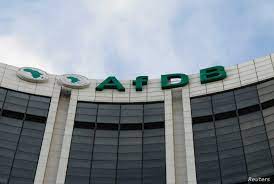The African Development Bank (AfDB) says it is ready to assist Nigeria in the design and implementation of “Security-Indexed Investment Bonds to raise more resources to tackle its security challenges.
President of the AfDB, Dr. Akinwumi Adesina, said this on Monday at the Mid-Term Ministerial Performance Review Retreat in Abuja.
He said the bonds would raise funds on the global capital markets to support countries to upgrade their security architecture, rebuild damaged infrastructure in conflict-affected areas, rebuild social infrastructure and protect zones with strategic investments.
The AfDB president further stressed that without security there could not be investment, growth, or development.
He pointed out that an economically resurgent Nigeria “must be a more peaceful and secure Nigeria”.
“Today, more than ever, several African countries are spending a significant share of their budgets on security, displacing the resources needed for development.
“We must recognize the strong linkages between security, investment, growth, and development.
“That is why the African Development Bank is working on developing Security-Indexed Investment Bonds to help African countries and Regional Economic Communities to mobilize resources to tackle these challenges.”
Furthermore, Adesina stressed the importance of the modernization and transformation of ports in Nigeria.
“Ports are not there for revenue generation. They are for facilitating business and exports and stimulating industrial manufacturing, and the competitiveness of local businesses and exports.
“We should not be decongesting the ports in Nigeria; we should be transforming the ports.
“This must start with cleaning up administrative bottlenecks, most of which are unnecessary with multiple government agencies at the ports, high transaction costs or even plain extortions from illegal taxes, which do not go into the coffers of the government.”
He also noted that the trade, investment, and competitiveness through the Africa Continental Free Trade Area was a major opportunity for Nigeria, which would depend on its ports.
He added that significant support should be directed towards boosting industrial manufacturing capacities.
“Nigeria should also move rapidly to the top of selected value chains, such as automobiles, computers and electronics, textile and garments, and food manufacturing, transport, and logistics.”
He also emphasized the need for Nigeria to significantly boost productivity and revenues from its non-oil sector, with appropriate fiscal and macroeconomic policies.
He added that flexible exchange rates, especially, would enhance international competitiveness.
The AfDB president also said Nigeria should take the FinTech industry as a major driver of the economy and invest heavily in digital infrastructure.
Adesina added that Nigeria should make its youth the drivers of the new economy through the creation of Youth Entrepreneurship Investment Banks to fully harness their potentials.
Among other points, he reiterated the need for Nigeria to establish Special Agro-industrial Processing Zones across the country and the reinstatement and enshrinement into law of the e-Wallet System and Growth Enhancement Scheme.
He said such an establishment would boost farmers’ access to products and enhance farm inputs.

